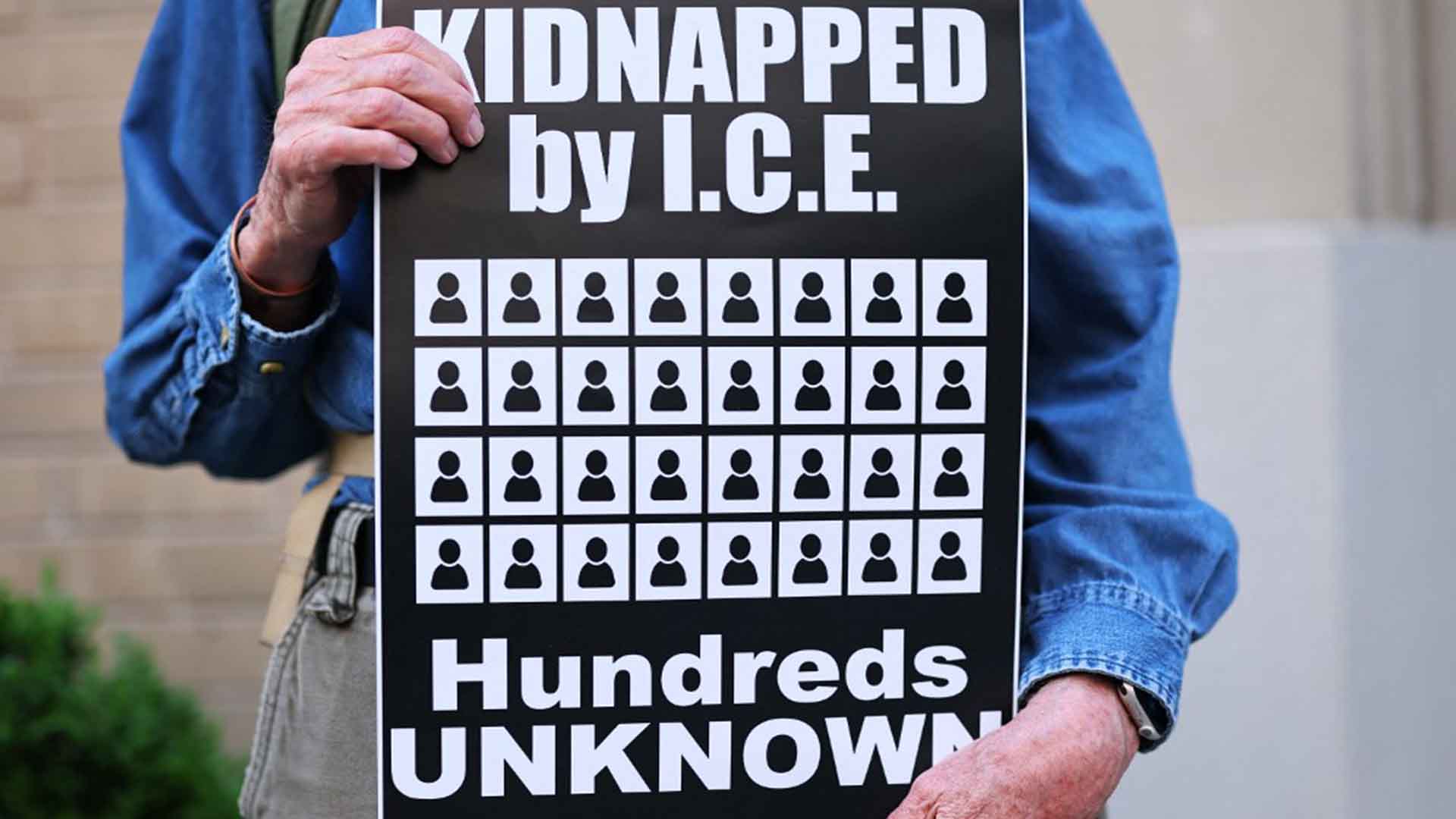Alleged US plans to deport people to Libya inhuman rights groups say

Human rights defender David Yambio recalls his time in Libya as one of “perpetual fear”.
Yambio fled Sudan in 2016 after he was forcibly recruited as a child soldier, and wound up in a series of detention centres and prisons in Libya.
“I was tortured, I was enslaved. I saw an enormous level of violence that I cannot describe,” he told Middle East Eye.
He managed to escape and cross the central Mediterranean to Europe, and has since painstakingly documented abuses against refugees in Libya through his organisation Refugees in Libya.
The news that US President Donald Trump is seeking to deport migrant people to Libya left him “deeply troubled”.
New MEE newsletter: Jerusalem Dispatch
Sign up to get the latest insights and analysis on Israel-Palestine, alongside Turkey Unpacked and other MEE newsletters
CNN has reported that Trump officials discussed with a Libyan delegation the possibility of sending non-nationals with criminal records to the country.
One source said that administration officials are also seeking to strike a formal “safe country” agreement with Libya which would allow the US to send asylum seekers apprehended at the US border to Libya to process their claims.
“As someone who has lived through this harsh reality of life in Libya, and the fact that I work every single day to address the ongoing crisis there, what I can say with certainty is that it's a dangerous, unacceptable and inhuman proposal,” Yambio said.
“Libya has never been a safe place for migrants, and I don't see it in any foreseeable future. The number of abuses we’re documenting against migrants, refugees and Libyans is enormous,” he told MEE.
Giulia Messmer, a spokesperson for the monitor Sea-Watch, said the move is “tantamount to condemning refugees to a violent cycle of torture, slavery and sexual violence.”
According to the report, no final agreement has been struck, and it is currently unclear which nationalities would be eligible for deportation.
A State Department spokesperson and a Libyan official denied that deportations were discussed at the meeting.
‘The most vile people on earth’
During his election campaign, Trump pledged to launch the largest mass deportation operation in US history, and has deported and detained thousands of people since taking office.
In January, he signed an executive order instructing officials to facilitate international agreements that would enable the US to deport migrant people.
'Libya has never been a safe place for migrants... The number of abuses we’re documenting against migrants, refugees and Libyans is enormous'
- David Yambio, co-founder of Refugees in Libya
Since then, his administration has reportedly struck deals with a number of central American countries including El Salvador, Mexico, Costa Rica and Panama, and is pushing to expand the list.
His administration is also reportedly also seeking a deal with Rwanda, which will see the country accept individuals with criminal records who have already served sentences in the US.
Under the agreement, the deportees would be integrated into Rwandan society.
In March, a refugee from Iraq, Omar Abdulsattar Ameen, was deported from the US to Rwanda.
Also in March, the US deported 200 Venezuelan men, whom it claimed were gang members, to an El Salvadoran mega prison, Cecot, shortly after the countries struck a $6m deal for El Salvador to detain around 300 migrants at the prison for one year.
Secretary of State Marco Rubio said at a US Cabinet meeting on Wednesday that the administration is “actively searching for other countries to take people from third countries”.
“We’re working with nations to ask: would you take in some of the most vile people on Earth as a favour to us? The farther they are from America, the better - so they can’t come back across the border,” he added.
Continuous abuse
Rights groups have long documented abuses perpetrated against thousands of people who arrive in Libya in the hope of boarding a boat to Europe and are abducted by traffickers and held to ransom.
Libya is a key transit country for thousands of refugees, often from Sub-Saharan Africa, with 760,000 estimated to have arrived in the country as of July 2024.
There, they are subjected to prolonged arbitrary detention, torture, sexual violence, forced labour and financial extortion, at the hands of both smuggling gangs and state actors.
The Libyan Coast Guard, which is trained and equipped by the European Union and member states, has long intercepted refugees attempting to cross the central Mediterranean and sent them to unofficial detention centres.
“What we are documenting is continuous human trafficking of migrants but also continuous abuse,” Yambio said.
“We are speaking about innumerable human trafficking hubs that belong to people who are affiliated either with the Ministry of Interior or with the government itself. This is the huge chain of human trafficking,” he added.
According to a recent report by Doctors Without Borders (MSF), refugees in the country are stripped of protections, which prevents them from accessing healthcare.
The NGO warned that the lack of healthcare access for refugees risked worsening the trauma and injuries they had sustained in detention.
In April, the Libyan authorities accused aid groups - including MSF and the UN refugee agency, UNHCR - of plotting to “change the demographic composition of the country,” ordering several to shutter their offices.
In mid-March, MSF was forced to wind down its operations in the country, citing a campaign of harassment targeting its staff.
Yambio highlighted that the potential deal with the US would grant yet more impunity to those committing abuses.
Rights groups have repeatedly highlighted the role of EU funding and support in perpetuating abuses against people on the move in Libya.
A UN fact-finding mission in March 2023 concluded that the EU had “aided and abetted” Libyan authorities’ crimes against migrants, through its bolstering of the Libyan Coast Guard and funding of Libyan border management programmes.
middleeasteye.net